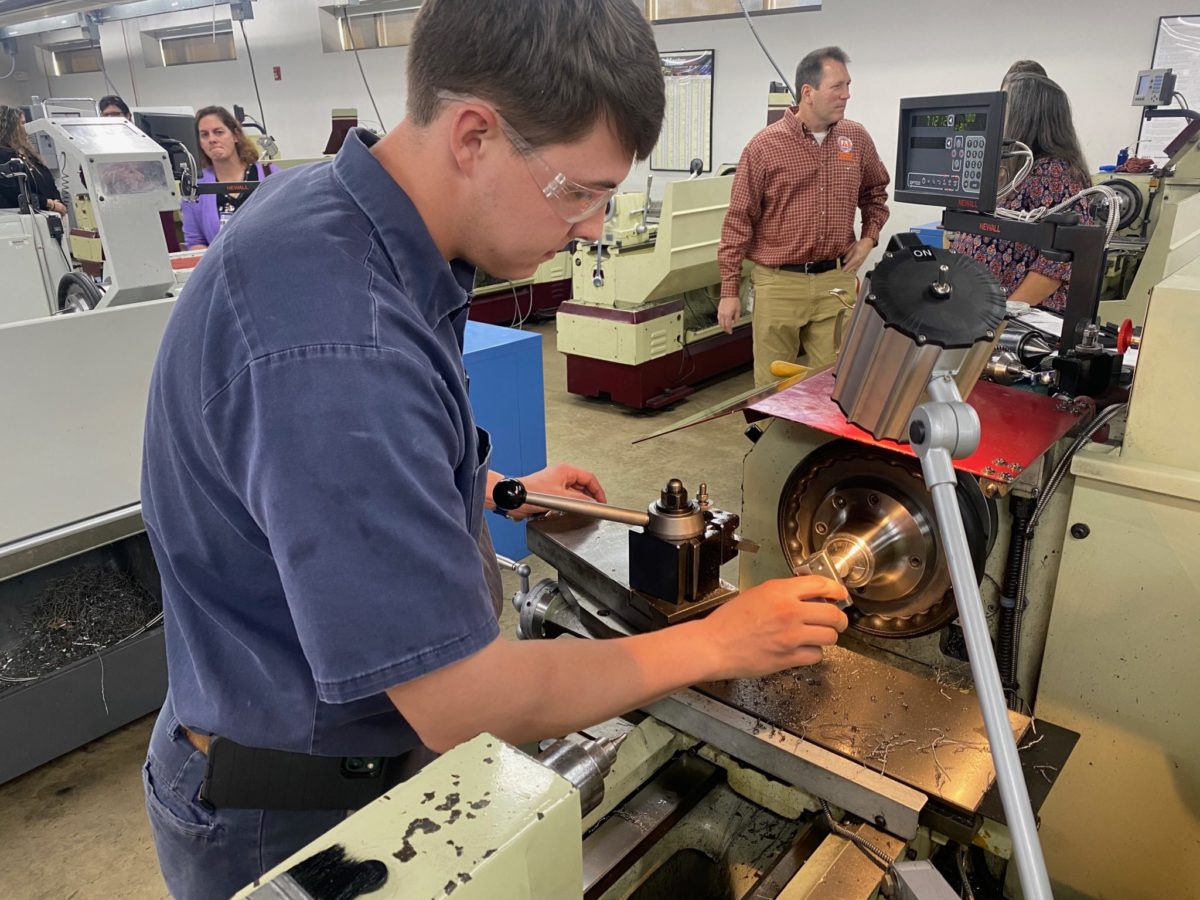
April 30 is recognized as National Apprenticeship Day. As an alternative to postsecondary degrees or professional certifications, which can be cost-prohibitive for many, it is time to fully expand apprenticeships in our country.
Of the 167 million people in the U.S. workforce, 62% do not have a postsecondary degree —meaning 103 million people are not being fully recognized for the talent and skill they’ve already developed through work. As many as two-thirds of jobs in the future are expected to require postsecondary credentials, either an industry-recognized certification or academic degree.
On March 25, Gov. Josh Stein signed an executive order to form a Council on Workforce and Apprenticeships. Chaired by Secretary of Commerce Lee Lilley, Sen. Eddie Settle, and NC Community Colleges President Jeffrey Cox, the council is tasked with identifying workforce needs and amplifying strategies to help North Carolinians access the education and training needed for high-wage, high-demand, and high-growth careers.
In 2019, North Carolina adopted with bipartisan support an ambitious goal from MyFutureNC of having 2 million North Carolinians aged 25-44 holding an industry-valued credential or postsecondary degree by 2030. Right now, about 1.7 million North Carolinians in that age range meet that criteria. There is still work to be done.
Apprenticeship programs, also known as work-based learning, allow individuals to earn income by working, learn from mentors in the workplace and classroom, and receive an employer credential while taking on little to no student debt. They offer significant value by developing both technical skills and essential soft skills, such as communication, teamwork, and problem-solving, which are crucial for success in the modern workplace. Apprenticeships provide hands-on experience and can help develop a strong work ethic, making apprentices highly desirable to employers.
As a U.S. Army veteran, I know that the United States armed forces recognize the value of apprenticeships, having created the United Services Military Apprenticeship Program to help active duty, reserve, and guard members improve their job skills and earn recognition equal to their civilian counterparts.
Many college degree programs do not include a work-based learning component in the curriculum, which could create a gap for students who lack prior direct-related work experience. The U.K. and Germany have developed “apprenticeship degree” programs as one solution. Craft Education, a technology platform that integrates work-based learning experiences to expand degree apprenticeship programs, states that the five keys to apprenticeship degrees are efficiency, flexibility, relevance, affordability, and professional capital.
The challenge for many apprenticeship programs is how to document the hours worked and skills learned by the apprentice. My employer, Western Governors University, recently acquired Craft Education in its endeavor to develop, launch, and scale work-based learning pathways.
Apprenticeship programs present a win-win scenario for employers and employees. Employers can help fill their workforce needs by training, retaining, and promoting individuals. Employees get paid, fill the “experience gap” missing from most degree programs, learn from experienced mentors and supervisors, and take on little to no student debt.
Employers, educators, and career seekers can learn more about the value of apprenticeships here.
Recommended reading



